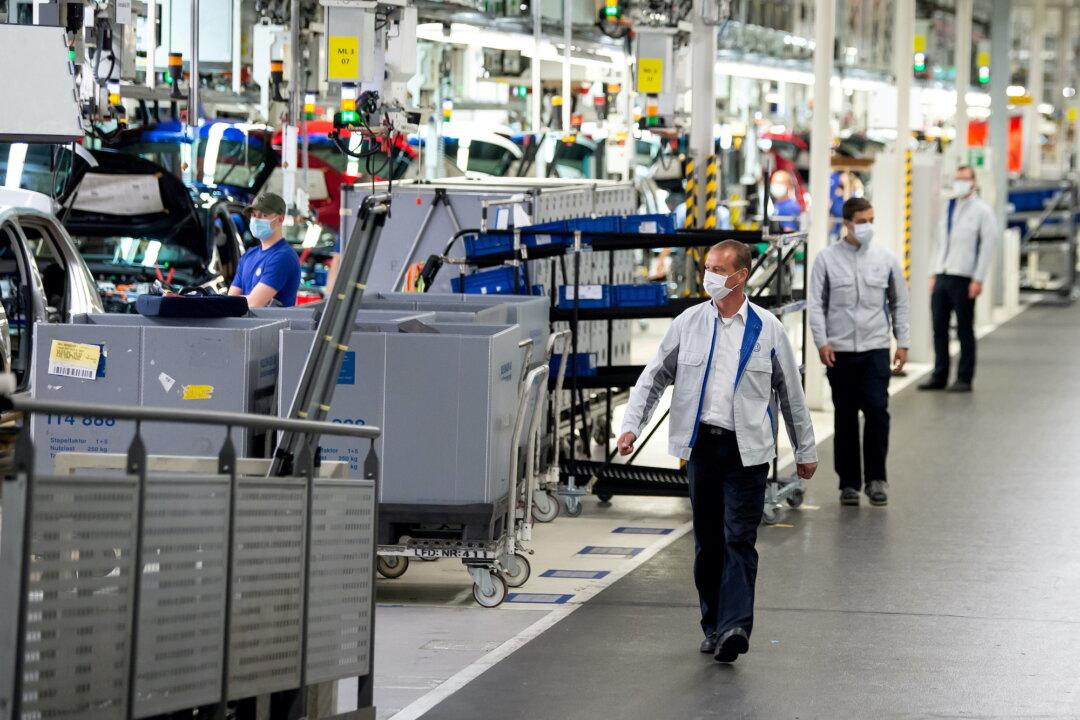BERLIN—Weaker demand from abroad drove a much bigger than expected drop in German industrial orders, including cars, in October, data showed on Monday, further clouding the growth outlook for manufacturers in Europe’s largest economy.
A pandemic-related scarcity of microchips and other electronic components has caused massive supply bottlenecks and production problems in Germany’s mighty automobile industry and other important sectors of the economy.





